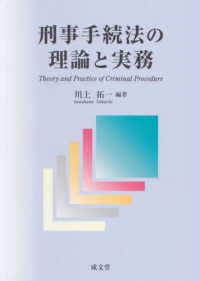Full Description
This book offers a unique look into prisons in Iran and the lives of the prisoners and their families. It provides an overview of the history of Iranian prisons, depicts the sub-culture in contemporary Iranian prisons, and highlights the forms that gender discrimination takes behind the prison walls.








